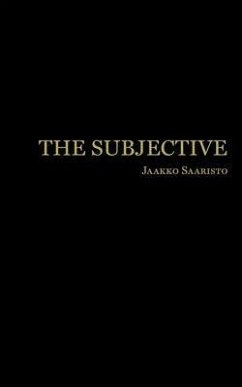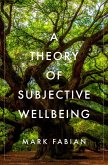The Subjective is an existential linguistic study that aims to clarify the meaning of the subjective and objective domains of life and to ultimately understand why our world tends to disdain human subjectivity and remains fixated on the objective. It builds upon the work of Wittgenstein and Kierkegaard, highly original and subjective thinkers that are often revered yet considered mysterious in academic setting. The text strives to make these thinkers approachable by also non-professional philosophers, yet the focus remains on using the method of linguistic analysis for a complete scrutiny over what it means for something to be subjective or objective.
Apart from the topic of subjectivity, other themes under scrutiny are meaning, ethics and morality, reason, logic, truth, religion and technology.
The text being existential means that there is a conscious aim to look at problems from the full moral perspective of the individual subject, as opposed to being sterilized into questions of syntactic correctness. There is, however, an equally conscious aim to resist reducing problems into subjective opinions of the author; the common ground for inspecting the meaning of something is our shared human language that we need to approach from the perspective that words and expressions carry a meaning that ideally can be shared by anybody and everybody. The conception of meaning is firmly grounded on Wittgenstein's "meaning as use", as opposed to the common metaphysical worldview where words denote objects.
The book is constructed in three parts that could be summarized as theory, analysis and politics.
Apart from the topic of subjectivity, other themes under scrutiny are meaning, ethics and morality, reason, logic, truth, religion and technology.
The text being existential means that there is a conscious aim to look at problems from the full moral perspective of the individual subject, as opposed to being sterilized into questions of syntactic correctness. There is, however, an equally conscious aim to resist reducing problems into subjective opinions of the author; the common ground for inspecting the meaning of something is our shared human language that we need to approach from the perspective that words and expressions carry a meaning that ideally can be shared by anybody and everybody. The conception of meaning is firmly grounded on Wittgenstein's "meaning as use", as opposed to the common metaphysical worldview where words denote objects.
The book is constructed in three parts that could be summarized as theory, analysis and politics.
Dieser Download kann aus rechtlichen Gründen nur mit Rechnungsadresse in A, D ausgeliefert werden.









